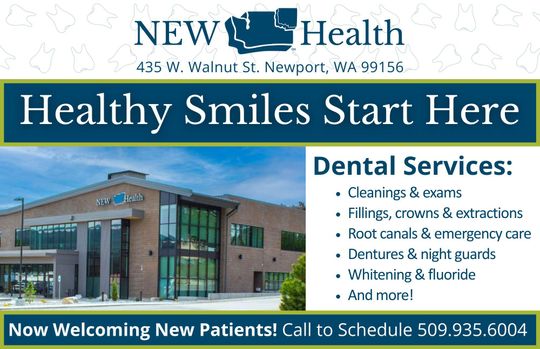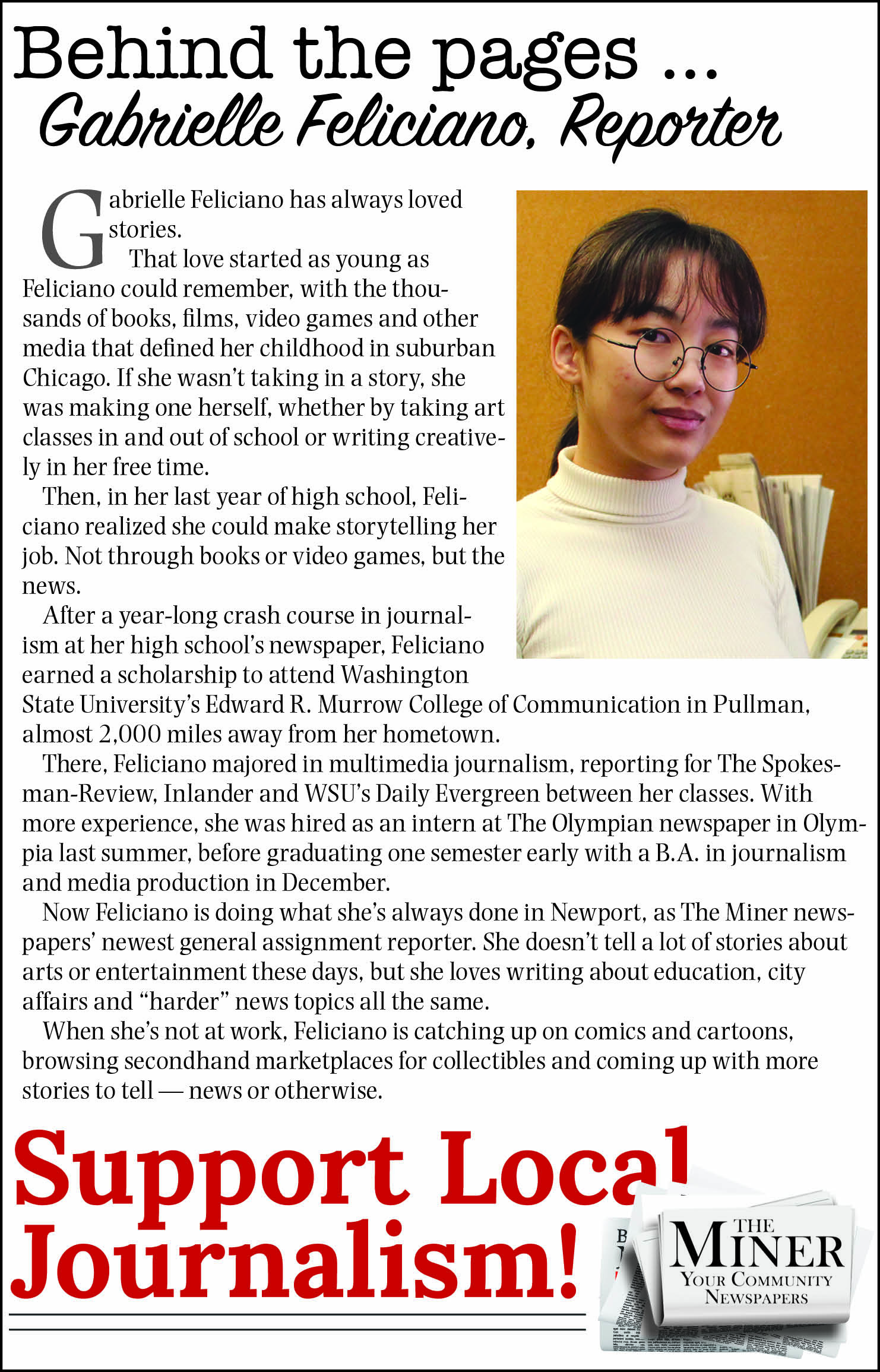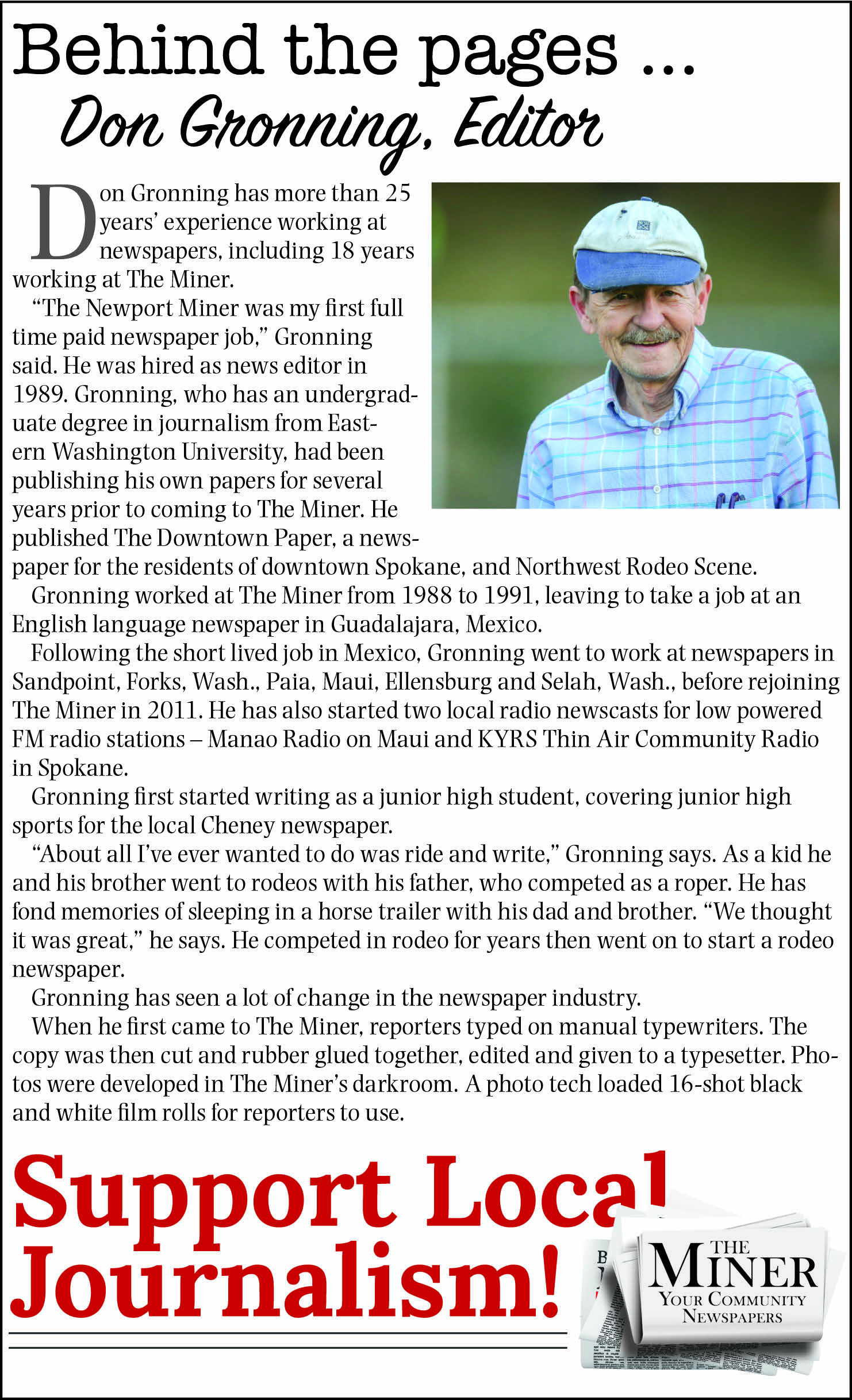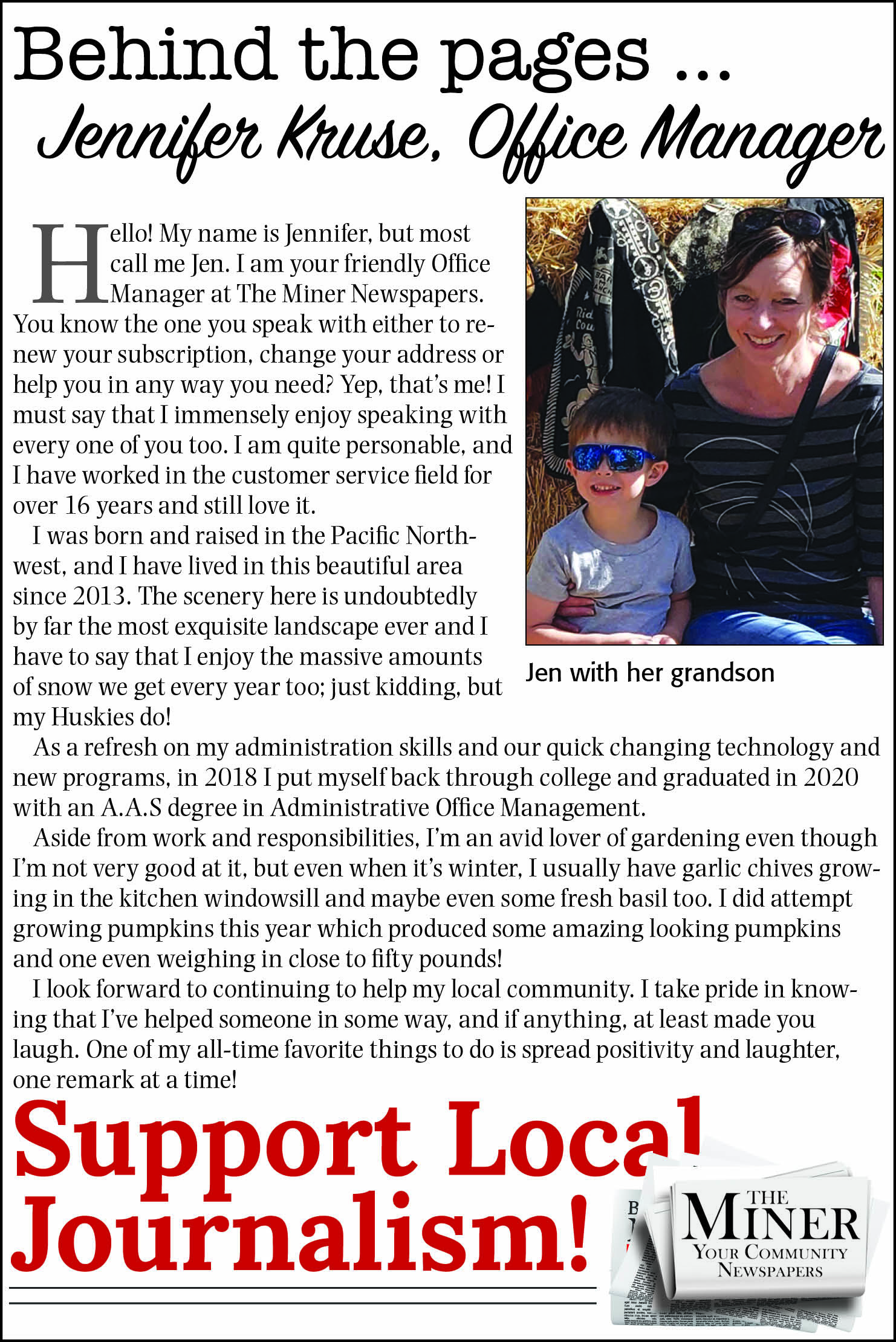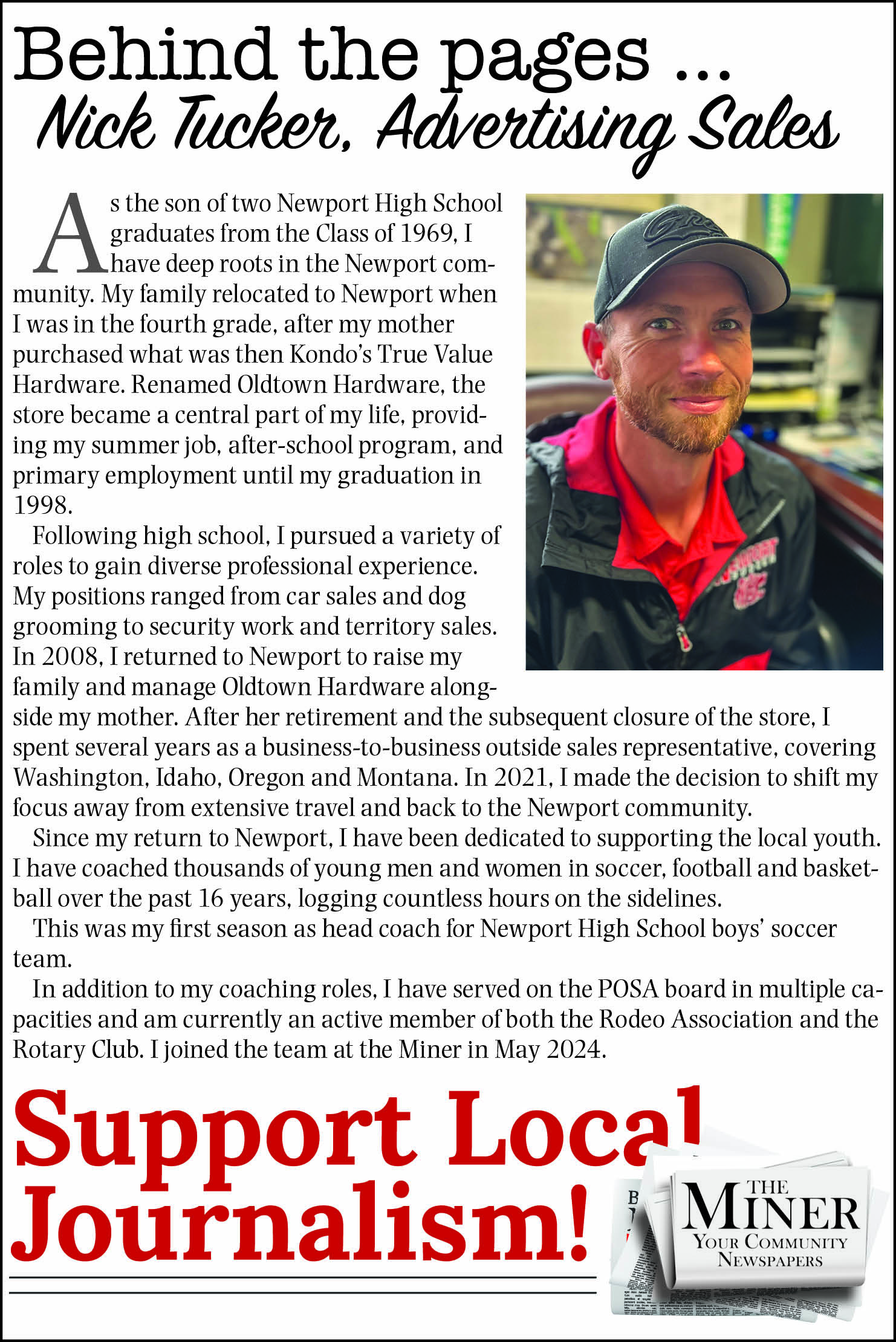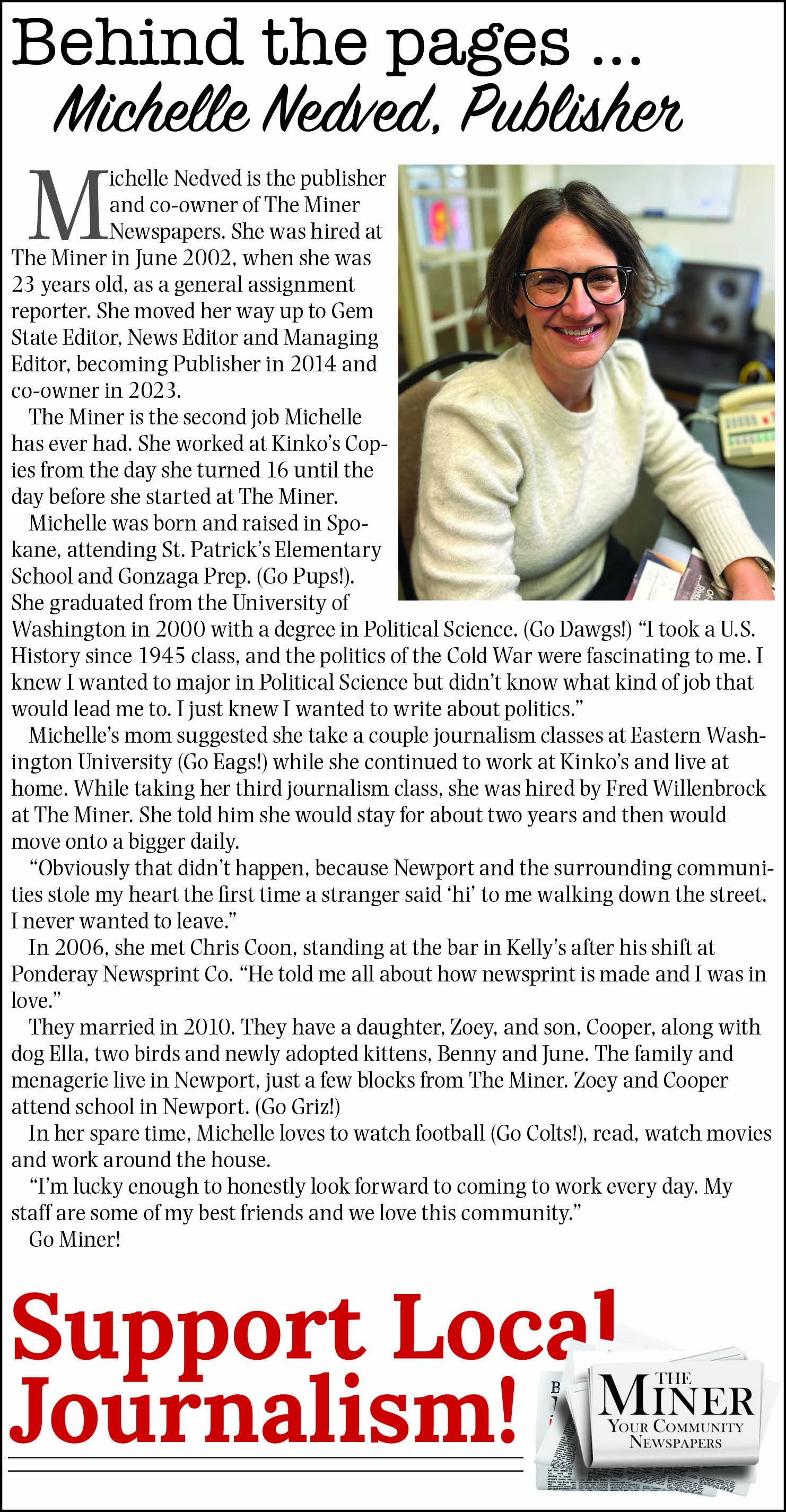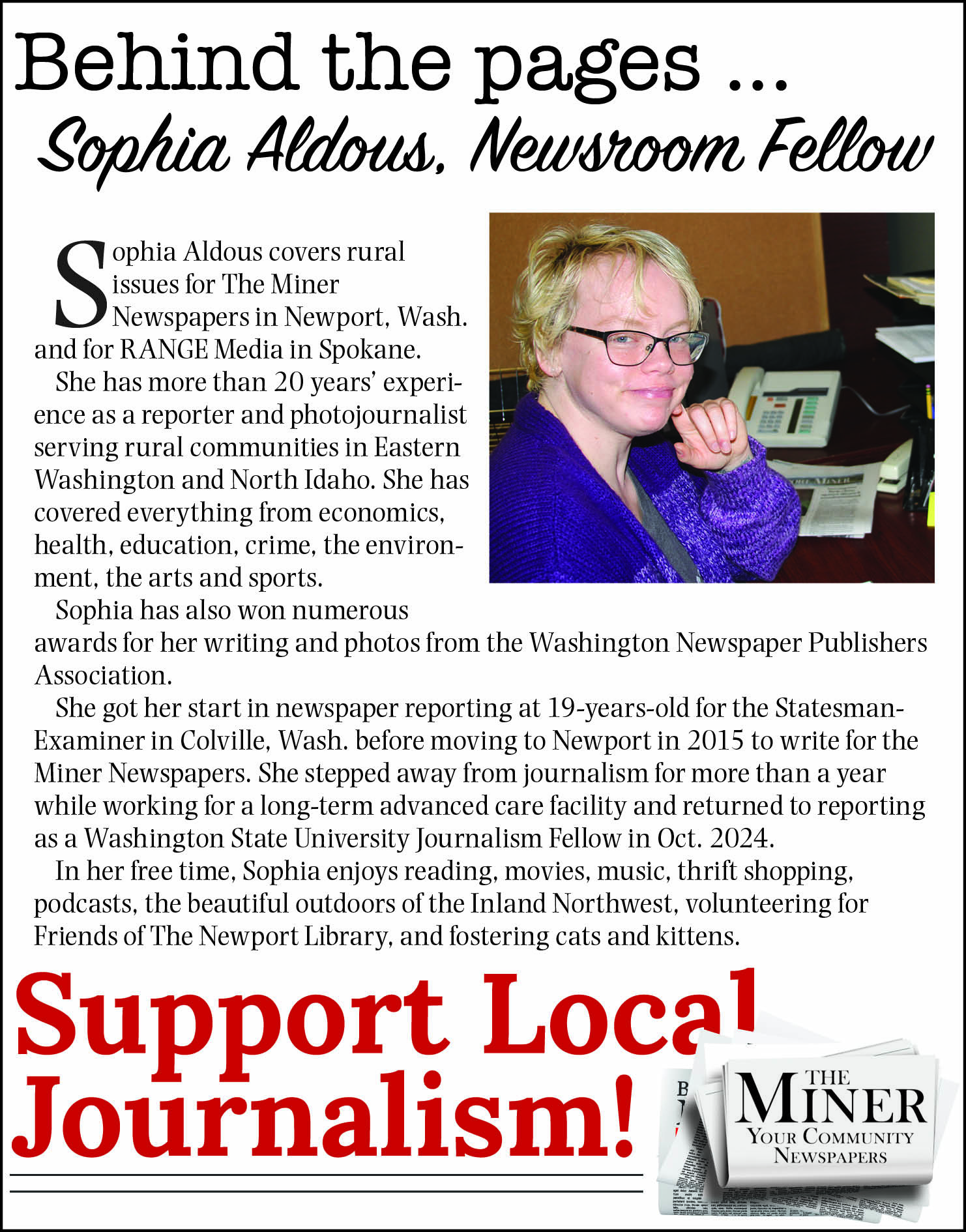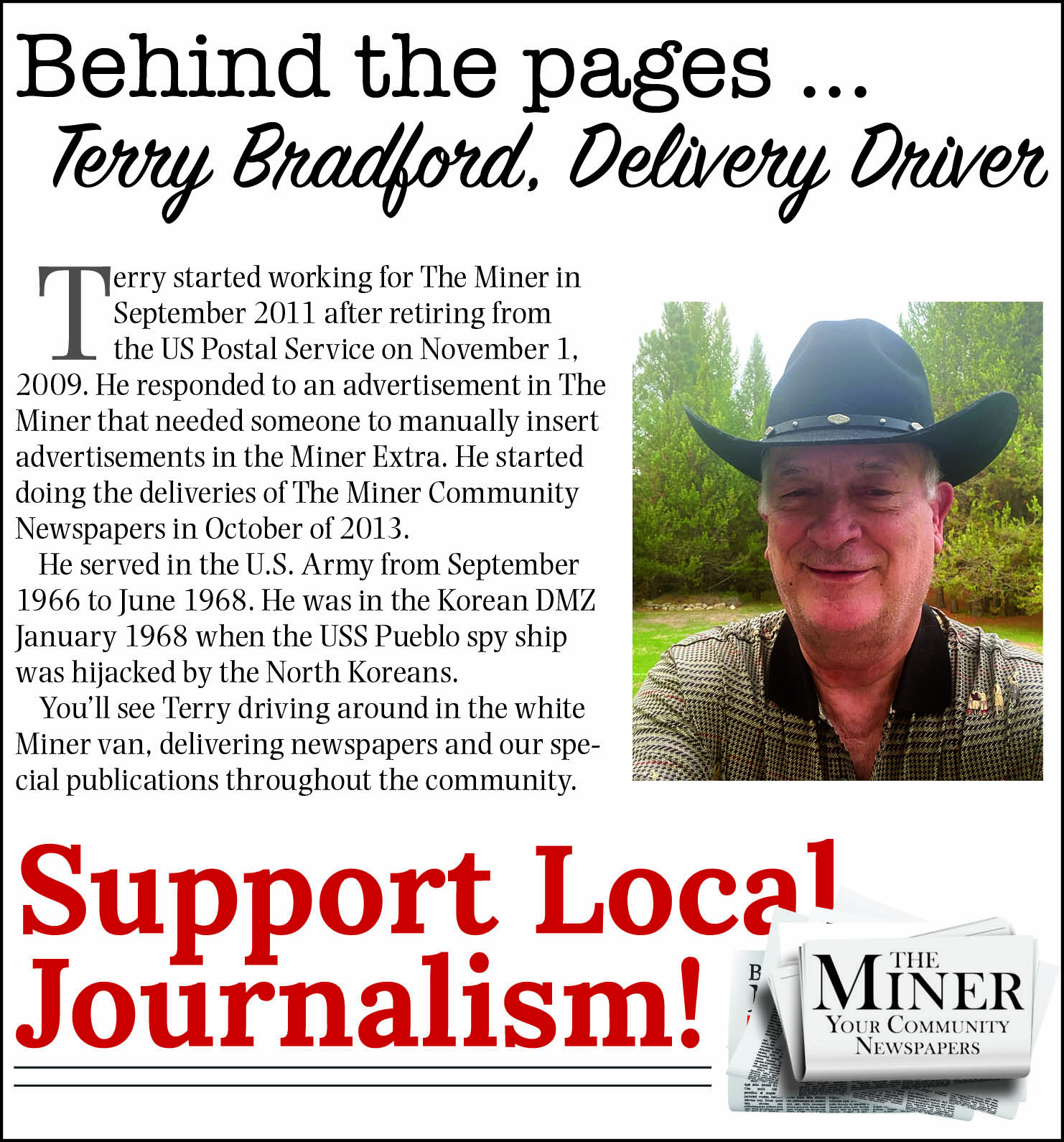NEWPORT — Whether to raise more money to better maintain county roads or to continue to let some go back to gravel was a key question Pend Oreille County commissioners addressed as they agreed to explore forming a transportation benefit district at their regular meeting Tuesday, July 22.
Commissioner Brian Smiley kicked off the discussion.
“I feel so often that the plain things and the main things get lost,” he said. The biggest physical asset the county owns, he said, is its roads.
Smiley said it’s up to leaders to find a way to fund their upkeep, one of the main things county commissioners need to do. In the face of rising material and labor costs, additional revenue for the roads is needed.
“My view is that the best way to secure that funding is a transportation benefit district,” Smiley said.
A transportation benefit district is an independent taxing district that can raise money for specific transportation projects, usually through vehicle license fees or sales taxes, according to the Municipal Research and Services Center. There are seven counties in the state, and more than 100 cities and towns that have them, including Airway Heights and Spokane.
Smiley said the public needs to be aware that there the county doesn’t have enough revenue to take care of its roads.
County Public Works Director Craig Jackson said county commissioners can form a transportation benefit district for the unincorporated areas of the county by themselves. A public hearing would have to be held to “establish the public welfare would be satisfied,” by forming such a benefit district, according to MRSC.
After the hearing the commissioners could vote to establish a 0.1% sales tax. If they want a larger tax, capped at 0.3%, they will need to take it to voters, which is what Smiley and Jackson want to do. If the five municipalities, Metaline Falls, Metaline, Ione, Cusick and Newport, want to be a part of the district, they would have to agree to do so and have a memorandum of understanding with the county on how funding would be distributed.
County finance manager Jill Shacklett said an 0.3% tax could raise about $350,000 - $400,000 annually.
Smiley said that he has gotten himself on the agendas at some town meetings and intends to speak with all the towns.
Jackson said while funding from a transportation benefit district helps, it isn’t the only additional funding needed but it would be a start.
“It definitely helps stop the taking roads back to gravel,” he told commissioners. “It’s still not enough to catch up to the $10 million.”
Jackson says county roads have fallen so far behind in upkeep over the years because of inadequate funding to pay for materials and staff to do maintenance on the 5-year schedule that he says is needed to keep them from deteriorating.
Smiley was in favor of moving it towards a vote as soon as reasonably possible, both by the commissioners and then the public for the additional sales tax. Rosencrantz had more questions.
Rosencrantz has been trying to get an Emergency Medical Services district established and has run into opposition. He wants to make sure the opposition is fully understood before the commissioners vote.
“Is this a vital issue? Yes, it is,” Rosencrantz said. “What’s the degree of urgency? I’m not sure.”
Gentle, the commission’s chairman, said the county budget is on his mind and he has seen some indication of what county departments are going to be seeking.
“I’m getting all ‘budget hawky’ already,” Gentle said. “The requests from the departments that are bigger than the dollars we have.” He said the county simply has too many roads to maintain, partially because past county commissions have added subdivision roads. The county needs to let some of those roads go.
“I hope this doesn’t preclude turning roads back to gravel that ought to be turned back to gravel,” Gentle said. The county only has two ways to deal with expenses that exceed revenue, adding more revenue or cutting expenditures.
“I do think we have to do both,” he said.
Gentle said increasing taxes is something that has to be sold to voters.
“We kind of need to have our message straight,” he said. “And it isn’t just raising money, it’s being good stewards of what we own.”
Smiley said a big part of establishing a transportation district is self-determination and independence.
He said the message he has for constituents is asking them if they want to take responsibility for maintaining what the county has or not.
“If they decide they want to continue to reduce, that’s a decision I’m going to respect,” he said. “But I think they need to not make that decision in a vacuum, they need to not make that decision in ignorance. They need clear information of the consequences.”
.png)


